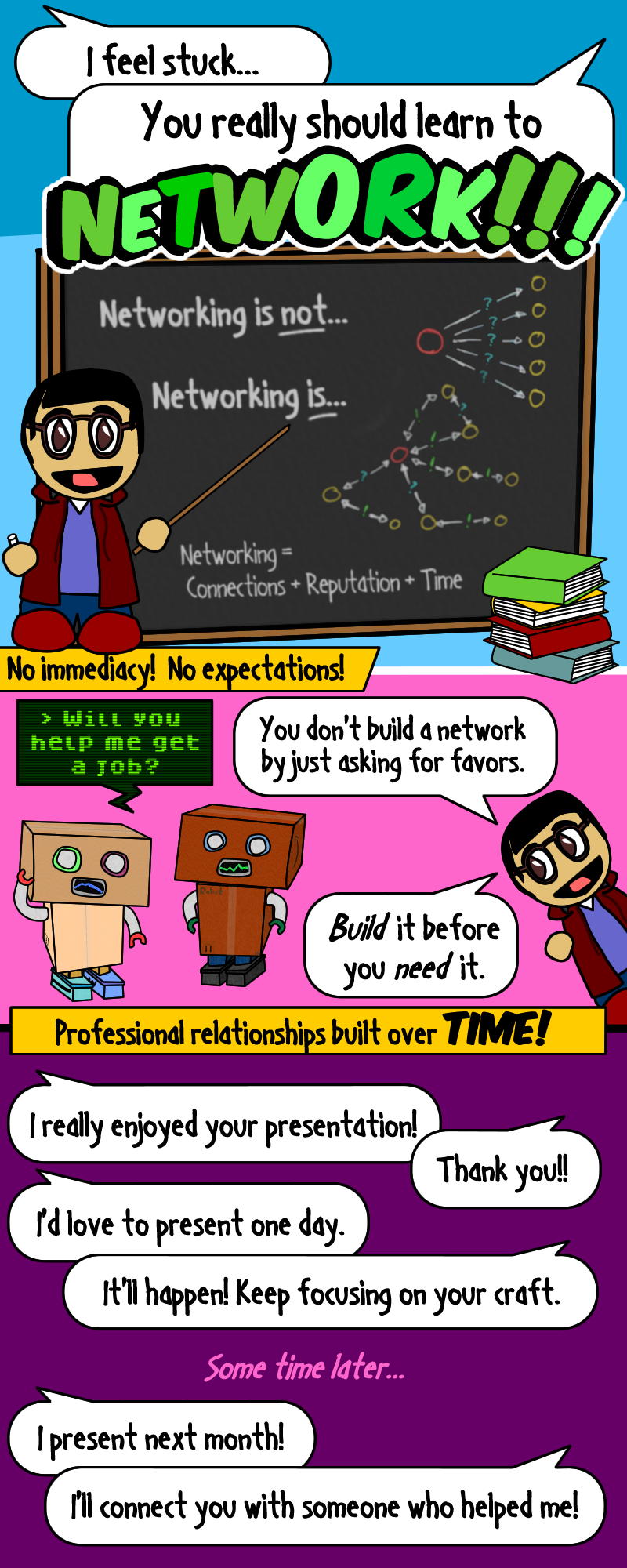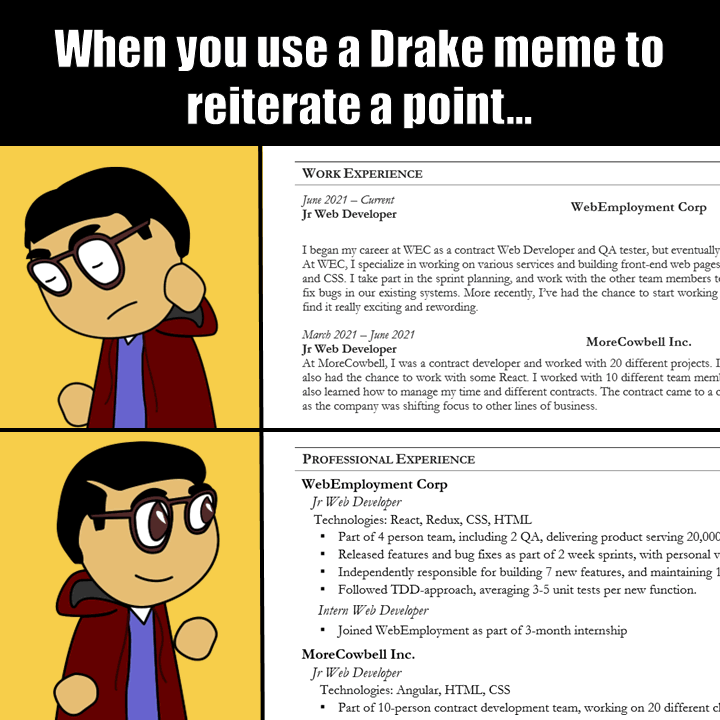What is "Networking?"
From high school through to college, I was hearing about the importance of 'networking.'
The term was like a relic of the past - when connections and reputation mattered more than your talent. It seemed wrong - that skill should stand on its own.
I'd hear about the importance of connecting with others - peers, more senior students, graduates, professors. Other times it would an off-the-cuff and frank statement delivered as one-liners like some old school film noire: "It's who you know..."
And I brushed off the idea: If I kept focused to building my skill, it should speak for itself, right?
That's not what a network is for.
In fact, I'll go so far as to say that you'll never know what your network is for - that's what makes it so powerful.
A strong network isn't one person asking favors of many. In fact, if you seek building your network in order to achieve some purpose, you're going about it all wrong.
A strong network is simply: Your Connections + Your Reputation + Time.
Maybe one day you'll be looking to advance your career. Or maybe, you are presenting and need some tips. Or - and this is the important part - maybe someone needs something from you. That's where your reputation is important.
Helpers help helpers. It's what strengthens the network. It's not to say helpers exclusively help helpers, there are many who cannot help (...yet). That's why helping helpers is so important to the fabric of the network: it divides up the work and makes the effort more sustainable.
So, what should you do if you're just starting out? If you want to (one day) help, but can't?
Don't start with an ask. Don't start with an empty 'hello' and expect something in return. Work on your craft, build a foundation of talent and skill.
As you build up your talent, do the following (in this order):
- Lurk: Just be around those you want in your network. Get a sense for who they are, what they're doing. (Determine if it's aligned with your goals.)
- Follow: As you build your comfort, begin to follow. Follow virtually, attend talks, or open-forum meetings. (Don't stalk 🙃)
- Participate: Once you have a foundation of skill, begin to comment and ask questions. If the person mentions a book, read it.
- Contribute & Emulate: Build on top of what's been done. Extend it. If the person you want to network with is active in the community, try doing the same. This will help you gain relevant experience and context.
- Engage: After you've followed, participated, and contributed you'll be better positioned to connect and engage. At this point, your only ask is to be connected. Introduce yourself, state why you want the connection.
- Build your reputation: Continue to grow your foundational skills, continue participating, contributing, emulating, and overtime engage more by asking specific (non-open-ended) questions.





